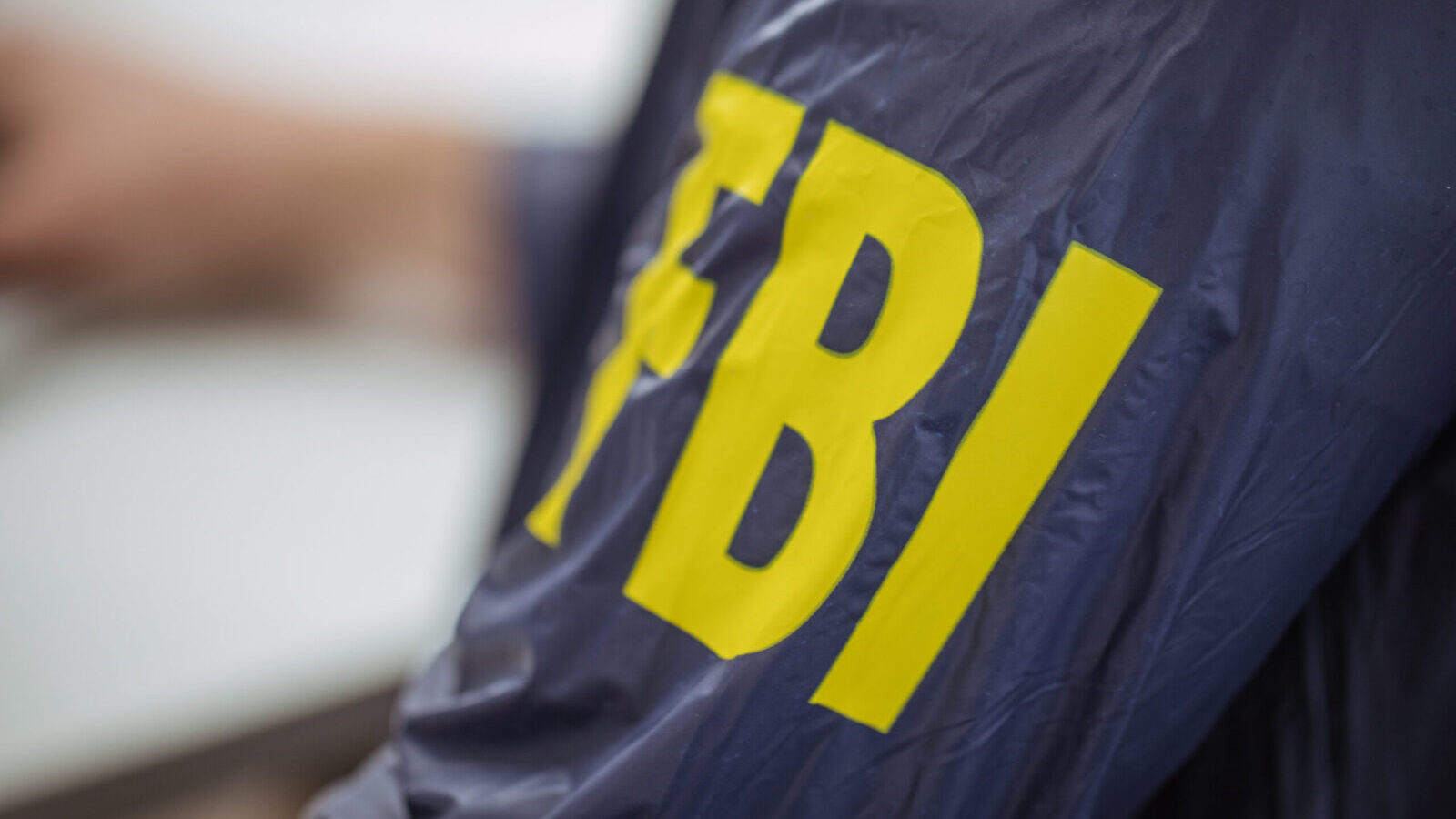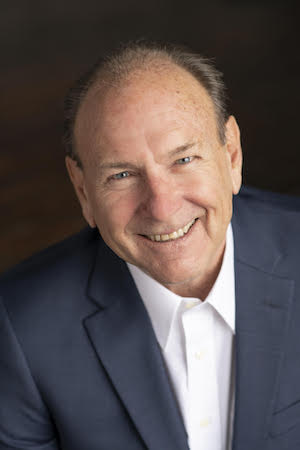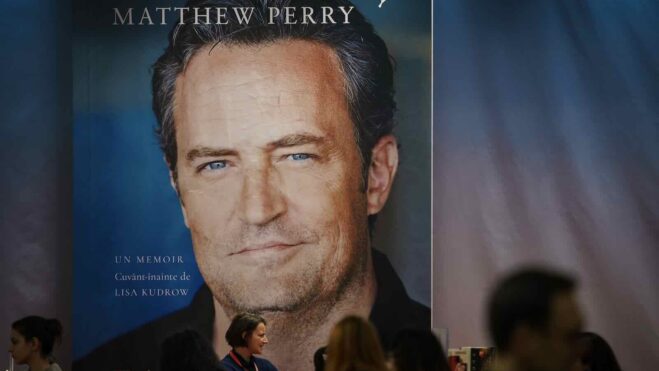Schuetz: The Ranks Of Adults Overseeing The Nevada Gaming Industry Just Keep Thinning
Dismissal of special agent in charge of FBI’s Las Vegas office the latest troubling news
8 min

“Hain’t we got all the fools in town on our side? And hain’t that a big enough majority in any town?”
— Mark Twain
There are, by my count, two credible sources of information about the legal and regulatory challenges within the Las Vegas gaming scene. The first is Robert Cipriani, a.k.a. “Robin Hood 702,” a man known as a high-rolling gambler and an FBI informant. I am often amazed at the number of things he gets right. And the other entity that appears to have been alive to what is going on in Las Vegas gaming over the course of the last few years is the federal government.
It fascinates me that I can write the above paragraph 53 years after I took my first job in the gaming industry.

The entity that is supposed to have its finger on the pulse of Nevada gaming, the Nevada Gaming Control Board, is in a continuing process of “whack-a-mole” leadership changes and seems to have lost the plot. It is down to a lame-duck chairman and George Assad.
Kirk Hendrick, the lame-duck chair, accepted a four-year appointment but has opted to run for the exit amid a raft of lousy publicity about Las Vegas casinos misbehaving and lots of important things being missed by the Nevada regulators — but uncovered by the federal government. That is a bad look for the regulators. When a state agency is responsible for regulating an industry and has to read about bad things happening in that industry in the newspaper, it is probably an appropriate time to consider leaving.
The other remaining member, George Assad, generates a lot of press just by being George Assad, and that press is generally not flattering. See here, here, here, and here. These two gentlemen will not be a duo written about in the future as regulatory visionaries based on their accomplishments as board members in Nevada.
I learned this weekend that Spencer Evans, the special agent in charge of the FBI’s Las Vegas office, has been dismissed. He had held that title of special agent in charge in Las Vegas since April 2022. It appears that there is no reason given for his dismissal. He has excellent credentials and is well respected within the bureau. He was also fluent in banking, and in working to understand issues surrounding the gaming industry, fluency in banking is a nice credential to have.
During his tenure in Las Vegas, Special Agent Evans had the opportunity to see Wynn Las Vegas forfeiting $130-plus million to settle criminal allegations, an amount “ …believed to be the largest forfeiture by a casino based on admissions of criminal wrongdoing.” While the Wynn folks have suggested “ … the finding didn’t amount to money laundering,” Carissa Messick, special agent in charge of IRS-Criminal Investigations in Las Vegas, stated in referring to the case: “Deliberately avoiding Bank Secrecy Act requirements is a form of money laundering.” The relevant point is that the Nevada Gaming Control Board was somewhere off on the sidelines doing something else while the federal government was doing the heavy lifting here.
Criminality in casinos
Also, during Evans’ tenure in Las Vegas, federal efforts in California were uncovering a large illegal sports betting operation involving a gentleman named Wayne Nix. This was in 2022. Through time, the feds came to understand this illegal betting operation led to crimes being committed in Las Vegas casinos.
The federal government announced these charges in March 2023. Nix, a former semi-pro baseball player, had a high-end and recognizable sports betting clientele including current and former professional athletes. Through his and others’ cooperation with the feds, it was discovered that much of the money from this operation was finding its way to Nevada casinos.
The reality that Nevada had some material problems with criminality in its casinos, which was being investigated, began to leak out later in 2023, as covered by reporter Dana Gentry. Of importance, the source of the story was apparently an employee of the state of Nevada. When state employees start narcing about the apparent inaction of the regulators in the state for failing to do their job, you just may have a problem.
By the end of 2023, a gentleman by the name of Scott Sibella had agreed to a plea agreement with the federal government for actions involving Nix, during the time Sibella was president and chief operating officer of the MGM Resort Hotel, a position he left in early 2019. As a result of his transgressions, Sibella paid a small fine, was placed on probation for a year, and gained the new title of felon.
Moreover, his employer at the time of his transgressions, the MGM Grand, agreed to pay a fine of over $6.5 million, forfeit $500,000 in proceeds, and provide $750,000 over two years to upgrade the apparent weaknesses in its compliance programs. When the federal government can figure out that your compliance efforts are so bad that they need to force you to spend a ton of money to enhance them, I would suggest your compliance routines must really suck.
More boots to drop?
This was not the end of it. When Sibella left the MGM, he went to Resorts World Las Vegas as president. He was fired from that company in September 2023.
And what was happening with Resorts World Las Vegas was another big California bookie deeply involved in moving money through a Nevada casino(s). In this case, the bookie was Mathew Bowyer. He has pleaded to running an illegal sports betting operation, money laundering, and falsifying his taxes. What made the Bowyer case a headline grabber were the incredible amounts of money he handled through his betting business generally and particularly the vast amounts he handled for the interpreter of one of the most famous baseball players on the planet, Shohei Ohtani. Moreover, the interpreter had secured much of the funds from Ohtani.
Nevada was now making headlines globally for not having a hint that another California bookie was laundering money through one of its casinos and that a famous athlete was, in some curious way, involved. This is not the type of thing that a regulator wants to put on their resume. Moreover, it is a rather embarrassing reality for a regulatory agency that once had a “gold standard” reputation.
There has been even more crazy to all of this (and one should anticipate even more to come). Mathew Bowyer is scheduled to be sentenced on April 4 (his birthday), and this is a date that resulted from a prior delay. Such delays can sometimes mean nothing. Or they can sometimes be meaningful, such as if the feds believe he has more to say. I have visited with several people who are close to how these processes work, and there is a feeling that more boots are to drop and that the feds do not believe they have the whole story. We will see.
There is more to the above narrative about the curious events taking place in Las Vegas gaming. For the sake of brevity, I will save them for another time. I will suggest that from the boots that have already dropped, it appears evident that the federal government has been actively engaged in addressing crime in casinos, and the Nevada Gaming Control Board has often been asleep at the switch. In economics, this is referred to as regulatory failure.
When I mentally visualize the gaming regulatory situation in Nevada, I see the board members of the NGCB and the governor standing atop Palatine Hill in Rome, fiddling away like Nero while the reputation of the state’s regulatory agency burns in the background.
A purge of competence
Given all that has gone on in Las Vegas over the last few years involving the federal government and MGM Resorts International, Resorts World Las Vegas, Wynn Las Vegas, Scott Sibella, Wayne Nix, Mathew Bowyer, professional athletes, etc., it is curious that someone would think this is an appropriate time to dismiss Spencer Evans, the special agent in charge of the FBI’s Las Vegas division. Again, there was no explanation given for his dismissal.
During my tenure as an executive in Las Vegas and beyond, I found the FBI incredibly competent and helpful, especially regarding issues involving the integrity of sports in Nevada. The state regulators were often unable to be of much help in sports integrity issues because their authority was within the state. Sports integrity issues generally involve events and people outside of the state or involving multiple states.
Moreover, the FBI has access to a large bag of tools and resources to investigate sports integrity issues that the state does not have. Given that, now is not the time to weaken one of the essential tools in Nevada concerning sports integrity, especially given the significant press given to California bookies with clients in the sports world who have been laundering money and being entertained in Nevada casinos.
What fascinates me about the recent decision involving Special Agent Evans is whether Nevada Gov. Joe Lombardo knew Evans was going to be dismissed. If he knew and agreed to it, does he believe this act would improve the effectiveness of regulating the casino industry in Las Vegas? It would be interesting to hear the governor articulate how the dismissal will improve or enhance the regulation and reputation of Nevada gaming.
If the governor did know and wanted to stop the dismissal, his opinion is apparently not considered important to the real decision-maker.
Finally, if Gov. Lombardo had not been consulted, it indicates that the decision maker did not respect Lombardo enough to ask if dismissing the top FBI official in Las Vegas could have negative consequences for the most important industry in the state.
What is also important for the Nevada gaming industry to understand is that other jurisdictions are looking at the Nevada gaming industry’s actors who have been involved in these scandals. The point is that casino entities having to write big checks for forfeitures and fines, being forced to get serious about compliance, being involved with money laundering, and welcoming illegal bookies associated with professional athletes is an image that other jurisdictions don’t want as casino partners.
The market for new deals in other casino jurisdictions is already noticing the Nevada situation, as described by journalist Todd Shriber, who noted in an article published last September that the people who determine who becomes operators in new jurisdictions, such as in New York, are paying attention to the problems in Las Vegas. The New York regulators even mentioned Wynn Las Vegas and Resorts World by name as being monitored for their issues with the feds.
Across America today, many people are working to convince different jurisdictions that gambling can be well-regulated and controlled. When the oldest regulated gaming state in the nation is awash with articles about illegal bookies laundering money in casinos, taking betting action, and associating with famous athletes, as well as senior executives being thrown out of the industry, it hurts a lot of folks. Nevada must get its act together and quit embarrassing the state and the industry. This is much bigger than Nevada. Some of us have worked long and hard to make this industry sustainable, and the nonsense going on in Nevada is not a roadmap to sustainability.
Gov. Lombardo and Chairman Hendrick now own the process that darkened the image of the integrity of gaming in Nevada, which has been broadcast worldwide over the last few years. While lame-duck Chairman Hendrick is presently running for the escape pod, this situation is now shaping the legacy of Gov. Lombardo, and screwing up the image of gaming and its regulation will not be a legacy he wants. He should also, as an aside, keep his eyes open for some additional boots to drop.
Oh, and if he could use the help of an experienced hand from the local special agent of the FBI, well, never mind. He is gone.
—
Richard Schuetz entered the gaming industry working nights as a blackjack and dice dealer while attending college and has since served in many capacities within the industry, including operations, finance, and marketing. He has held senior executive positions up to and including CEO in jurisdictions across the United States, including the gaming markets of Las Vegas, Atlantic City, Reno/Tahoe, Laughlin, Minnesota, Mississippi, and Louisiana. In addition, he has consulted and taught around the globe and served as a member of the California Gambling Control Commission and executive director of the Bermuda Casino Gaming Commission. He also publishes extensively on gaming, gaming regulation, diversity, and gaming history. Schuetz is the CEO American Bettors’ Voice, a non-profit organization dedicated to giving sports bettors a seat at the table.






